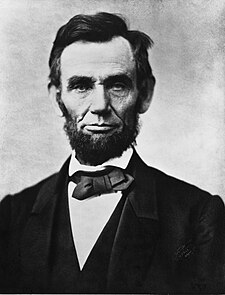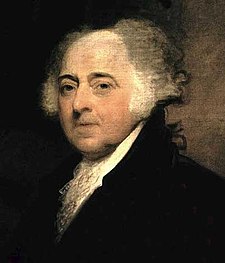The growing ambivalence of our society toward moral behavior was aptly highlighted by the inscription on a T-shirt I saw recently: “It’s not illegal if you don’t get caught!â€
Perhaps you could have expected such a motto to be proclaimed by a rebellious teenager, but no, the t-shirt was worn by an attractive, well-groomed, apparently prosperous, middle-aged woman.
Our founding fathers warned of the consequences of such attitudes. For example, John Adams, second president of the United States, offered this counsel:
"Statesmen, my dear Sir, may plan and speculate for liberty, but it is Religion and Morality alone, which can establish the Principles upon which Freedom can securely stand. The only foundation of a free Constitution is pure Virtue, and if this cannot be inspired into our People in a greater Measure, than they have it now, they may change their Rulers and the forms of Government, but they will not obtain a lasting liberty."
I was impressed recently by a discourse entitled “Moral Discipline†given by Todd Christofferson, a member of the Quorum of Twelve Apostles in the Church of Jesus Christ of Latter-day Saints. Prior to his call to serve as a full-time General Authority of the Church, Elder Christofferson was associate general counsel of NationsBank Corporation (now Bank of America) in Charlotte, North Carolina. His experience as an attorney in the financial services market coupled with his insight as an ecclesiastical leader offer a unique perspective to this subject.
 … we all possess the God-given gift of moral agency—the right to make choices and the obligation to account for those choices (see D&C 101:78). … for positive outcomes, moral agency must be accompanied by moral discipline.
… we all possess the God-given gift of moral agency—the right to make choices and the obligation to account for those choices (see D&C 101:78). … for positive outcomes, moral agency must be accompanied by moral discipline.
By “moral discipline,†I mean self-discipline based on moral standards. Moral discipline is the consistent exercise of agency to choose the right because it is right, even when it is hard. It rejects the self-absorbed life in favor of developing character worthy of respect and true greatness through Christlike service (see Mark 10:42–45). The root of the word discipline is shared by the word disciple, suggesting to the mind the fact that conformity to the example and teachings of Jesus Christ is the ideal discipline that, coupled with His grace, forms a virtuous and morally excellent person.
Elder Christofferson proceeded to explain the results of behavior John Adams warned about:
The societies in which many of us live have for more than a generation failed to foster moral discipline. They have taught that truth is relative and that everyone decides for himself or herself what is right. Concepts such as sin and wrong have been condemned as “value judgments.†As the Lord describes it, “Every man walketh in his own way, and after the image of his own god†(D&C 1:16).
As a consequence, self-discipline has eroded and societies are left to try to maintain order and civility by compulsion. The lack of internal control by individuals breeds external control by governments. One columnist observed that “gentlemanly behavior [for example, once] protected women from coarse behavior. Today, we expect sexual harassment laws to restrain coarse behavior. . . .
“Policemen and laws can never replace customs, traditions and moral values as a means for regulating human behavior. At best, the police and criminal justice system are the last desperate line of defense for a civilized society. Our increased reliance on laws to regulate behavior is a measure of how uncivilized we’ve become.â€2
An associate of mine recently posed an interesting question, “Can you legislate morality?†It became clear in our discussion that while you certainly cannot force someone to have moral discipline, our laws are certainly based on moral principles. In the United States, the origin of these principles are clearly traced back via the Judeao-Christian tradition to the Ten Commandments. However, when we rely on external enforcement rather than personal discipline to maintain harmony with those principles (the “it’s not illegal if you don’t get caught†mentality), chaos may replace civil order.
In most of the world, we have been experiencing an extended and devastating economic recession. It was brought on by multiple causes, but one of the major causes was widespread dishonest and unethical conduct, particularly in the U.S. housing and financial markets. Reactions have focused on enacting more and stronger regulation. Perhaps that may dissuade some from unprincipled conduct, but others will simply get more creative in their circumvention.3 There could never be enough rules so finely crafted as to anticipate and cover every situation, and even if there were, enforcement would be impossibly expensive and burdensome. This approach leads to diminished freedom for everyone. In the memorable phrase of Bishop Fulton J. Sheen, “We would not accept the yoke of Christ; so now we must tremble at the yoke of Caesar.â€4
In the end, it is only an internal moral compass in each individual that can effectively deal with the root causes as well as the symptoms of societal decay. Societies will struggle in vain to establish the common good until sin is denounced as sin and moral discipline takes its place in the pantheon of civic virtues.5
Let me repeat one phrase that strikes to the heart of the matter, “There could never be enough rules so finely crafted as to anticipate and cover every situation, and even if there were, enforcement would be impossibly expensive and burdensome. This approach leads to diminished freedom for everyone.â€
The answer to the chaos that reigns in our world is not more government regulation. It doesn’t lie in tougher enforcement. The real solution cannot be legislated. We as American citizens must individually and together develop the internal moral discipline that is essential for freedom to exist.
Consider the words of these great Presidents of the United States:
"Of all the dispositions and habits which lead to political prosperity, Religion and Morality are indispensable supports. In vain would that man claim the tribute of Patriotism who should labor to subvert these great pillars of human happiness, these firmest props of the duties of Men and Citizens. … And let us with caution indulge the supposition that morality can be maintained without religion. Whatever may be conceded to the influence of refined education on minds of peculiar structure, reason and experience both forbid us to expect that national morality can prevail in exclusion of religious principle."
– George Washington, First President of the United States
"God who gave us life, gave us liberty. And can the liberties of a nation be thought secure when we have removed their only firm basis, a conviction in the minds of the people, that these liberties are a gift from God?"
– Thomas Jefferson, Third President of the United States
"We have been the recipient of the choicest bounties of heaven. We have been preserved these many years in peace and prosperity. We have grown in numbers, wealth and power as no other nation has grown. But we have forgotten God. We have forgotten the gracious Hand which preserved us in peace, and multiplied and enriched and strengthened us, and we have vainly imagined, in the deceitfulness of our heart, that all these blessings were produced by some superior wisdom and virtue of our own."
– Abraham Lincoln, Sixteenth President of the United States
It is my hope that we as Americans can answer the call for moral discipline – first by cultivating such attitudes and behavior in our own lives and then persuading others to do likewise. Therein lies the the real answer for our troubled times – freedom earned through moral discipline bringing victory over tyranny.








